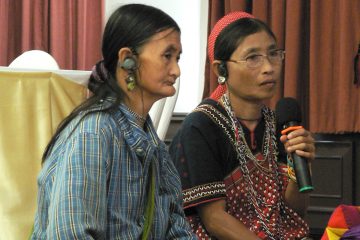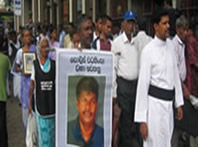UN Women, 23 November 2012
The sound of helicopters still makes Soi Tonnampet shake, years later. It takes her back to the first time she and others from her indigenous community, the Karen, fled from an operation to clear areas of national parkland in Northern Thailand. She recalls that during their first three-day escape through the forest – one of many – an elderly woman died and another woman miscarried.
Indigenous women shared their concerns about development-induced violence,
and the strategies they have used to address it during the four-day meeting.
Photo credit: UN Women/Jo Baker
For Lori Beyer, who is helping indigenous women contend with mining operations in the Philippines, gender-based violence has a different face. “Many of the male campaigners have to go into hiding,” she says. “It makes the women more vulnerable to sexual harassment, intimidation and sometimes worse.”
Although they come from villages far apart, indigenous women’s network members…


